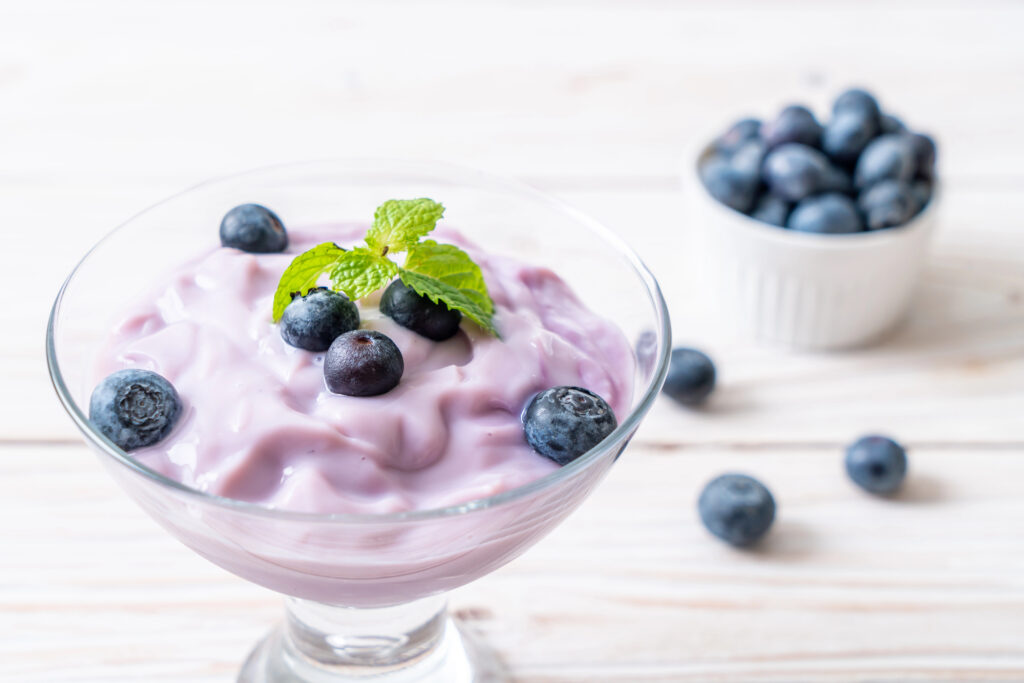Probiotics are living microorganisms, often referred to as “good bacteria,” that play a crucial role in maintaining a healthy gut. These beneficial bacteria support the balance of your gut’s microbiome, which affects not only digestion but also overall well-being.
Over the last few years, probiotics have gained significant attention in the health and wellness community. With more people seeking natural solutions for their digestive problems, probiotics and gut health are now at the forefront of the conversation. Gut health is incredibly important because it influences far more than digestion, including immunity, mood, and even energy levels.
If you’re dealing with bloating, IBS, or any digestive discomfort, our team at Gastroenterology Associates of the Piedmont, P.A. (GAP) can help you explore how probiotics might improve your gut health. Contact us at 336-448-2427 to schedule an appointment today.
How Probiotics Support Gut Health
Your gut microbiome is a diverse ecosystem of trillions of microorganisms that reside in your digestive tract. These bacteria, both good and bad, work together to support your digestion, nutrient absorption, and immune function. However, when this delicate balance is disrupted, digestive issues like bloating, diarrhea, and even more chronic conditions can arise.
Probiotics work by replenishing the “good bacteria” in your gut to restore this balance. For instance, after a round of antibiotics, which can unintentionally wipe out both good and bad bacteria, probiotics can help your gut recover more quickly. They also support your microbiome by improving digestion and reducing common issues like irregularity, gas, and bloating.
Research has shown that probiotics can be particularly beneficial for individuals dealing with conditions such as irritable bowel syndrome (IBS), post-antibiotic diarrhea, and inflammatory bowel diseases like ulcerative colitis.
Types of Probiotics and How They Work
Not all probiotics are created equal. Different strains of beneficial bacteria serve different purposes, so understanding the types of probiotics and how they work can help you make better choices for your specific needs.
- Lactobacillus species are excellent for people dealing with diarrhea and lactose intolerance. These strains are often found in yogurt and fermented foods.
- Bifidobacterium species are known to help with IBS symptoms, including bloating and gas.
- Saccharomyces boulardii, a yeast-based probiotic, is particularly effective for antibiotic-associated diarrhea.
The key to successful probiotic use is matching the strain to the condition you are dealing with. For example, if you are managing IBS, a strain like Bifidobacterium infantis may offer some relief. If you’re unsure which strain is right for you, consulting a gastroenterologist can provide clarity.
Natural Sources of Probiotics
If you prefer to start with dietary changes rather than supplements, there are plenty of natural sources of probiotics you can include in your meals:
- Yogurt: A widely accessible probiotic food, yogurt contains strains of live bacteria such as Lactobacillus.
- Kefir: A fermented milk drink loaded with diverse probiotic strains.
- Sauerkraut and Kimchi: Fermented cabbage dishes rich in probiotics and great for digestion.
- Miso and Tempeh: Fermented soy products that not only provide probiotics but are also excellent sources of protein.
Eating these foods regularly can help populate your gut with good bacteria. However, supplements may be more efficient if you need targeted support for specific conditions.
Probiotics vs Prebiotics: What Is the Difference?
While probiotics introduce beneficial bacteria into your gut, prebiotics serve as food for these bacteria. Prebiotics are non-digestible fibers found in foods like bananas, onions, garlic, and oats that help good bacteria thrive.
To maintain optimal gut health, you need both probiotics and prebiotics. Think of it as gardening for your microbiome. Probiotics are the seeds, while prebiotics are the fertilizer that helps these seeds grow and flourish.
Who Might Benefit Most from Probiotics?
While probiotics can benefit nearly everyone, some individuals stand to gain the most:
- Those with IBS or Ulcerative Colitis may experience a reduction in symptoms like cramping and diarrhea.
- Individuals recovering from antibiotics can use probiotics to restore their gut flora.
- Anyone suffering from bloating or irregular stools may find that probiotics help normalize digestion.
If you face persistent digestive issues, it’s a good idea to consult a gastroenterologist. Our specialists at Gastroenterology Associates of the Piedmont, P.A. (GAP) can guide you on whether probiotics are an appropriate solution for your symptoms.
Why Choose Gastroenterology Associates of the Piedmont?
At GAP, we take pride in offering compassionate, patient-centered care. Our team of experienced digestive health specialists personalizes each treatment plan to suit your individual needs. Whether you need guidance on probiotics and gut health or more advanced diagnostic tools, GAP is here to help.
We provide:
- Personalized care plans tailored to your condition.
- Access to cutting-edge diagnostics and treatments.
- Convenient locations and easy appointment scheduling.
- A community-focused approach that prioritizes your well-being.
Take the First Step Toward Better Gut Health
Probiotics are a powerful tool for supporting your gut health, but they work best when used with medical guidance tailored to your specific needs. At GAP, we’re here to help you make informed decisions about your digestive health.
If you’re experiencing ongoing symptoms like bloating, irregularity, or discomfort, don’t wait. Call 336-448-2427 to schedule a consultation with one of our gastroenterologists. Together, we can determine whether probiotics are the right step for improving your digestive health.

